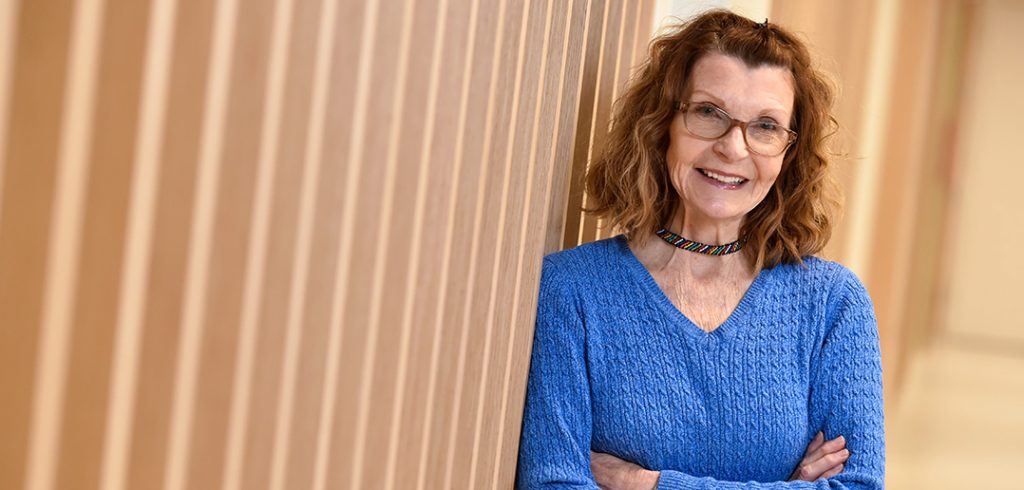Judy Benjamin, Ph.D., is Fordham’s Institute of International Humanitarian Affairs’ newest Helen Hamlyn Senior Fellow. Benjamin has a master’s in anthropology from Hunter College and a doctorate in anthropology from Binghamton University. Her career has centered on conflict-affected and less-developed countries, applying social science professional skills in the areas of gender, education, health, and economic development in over 30 countries worldwide.
Q: This is not your first go-around with the IIHA, correct?
A: I taught in the Institute during its first couple of years. I knew Dr. Cahill, because I had been in international work my entire career. From time to time I had visited him for my own illnesses, which were usually parasitic in nature.
Q: What have you been doing recently?
I’ve been working as an independent consultant since 2009. Prior to that, I worked for organizations such as CARE International, the International Rescue Committee, Academy for Educational Development, the United States Agency for International Development, the UN World Food Program, UNICEF, and the UN Development Programme, UNDP among others. I’ve done a lot of work looking at gender-based violence. Most of the countries that I’ve worked in have been either in conflict or post-conflict.
Q: What will you be doing for IIHA?
{I’ll be} participating in the development, management, and implementation of the Institute’s academic and training programs, along with responsibilities for teaching and coordinating the academic aspects of the Institute’s undergraduate and graduate curricula at Fordham. I’m making sure that our courses are meeting the students’ needs in this area, and also that there’s a compatibility with other programs. For our new graduate program, which we’ll be launching in the fall, I’m ensuring that we have course descriptions and professors identified to teach the courses. I’m also teaching humanitarian affairs, which is a prerequisite for some of the more advanced courses. I love to see the excitement and enthusiasm among students; they’re hungry for information.
Q: Tell us about your hands-on experience.
A: I lived for a year and a half in a refugee camp in Western Tanzania. People were fleeing genocide in Rwanda resulting in a massive movement of people into Tanzania and the Democratic Republic of Congo. I was a director of a HIV AIDS and reproductive health program that was funded by USAID. I lived in the camps, supervised, hired, and trained outreach educators who moved through the camps to train and educate refugees about HIV AIDS prevention. The camps kept expanding and expanding, until there were nearly 500,000 people. I originally agreed to stay for six months, but ended up remaining for a year and a half. It was quite challenging.
Q: What is the most pressing problem facing the humanitarian assistance community?
A: I’d have to say lack of sufficient funds to do what we need to do. It has also become increasingly insecure for people working in this field. I have a number of friends who have been killed in Iraq, Afghanistan, and the Democratic Republic of Congo.
Then there is a growing number of refugees who are internally displaced within their own borders. Their situations were initially meant to be temporary, but for some of them, the displacements have lasted for many, many years. That was certainly the case with the Afghan refugees who were settled in Pakistan. Multiple generations grew up as refugees. There’s a frustration and hopelessness among the young people in these camps.
Q: What draws you to this work?
A: I couldn’t imagine doing anything else. It seems natural to want to make a tiny bit of difference. I’m not going to change the world, but if I can make the lives of other people just a little better, that’s inspiring.

